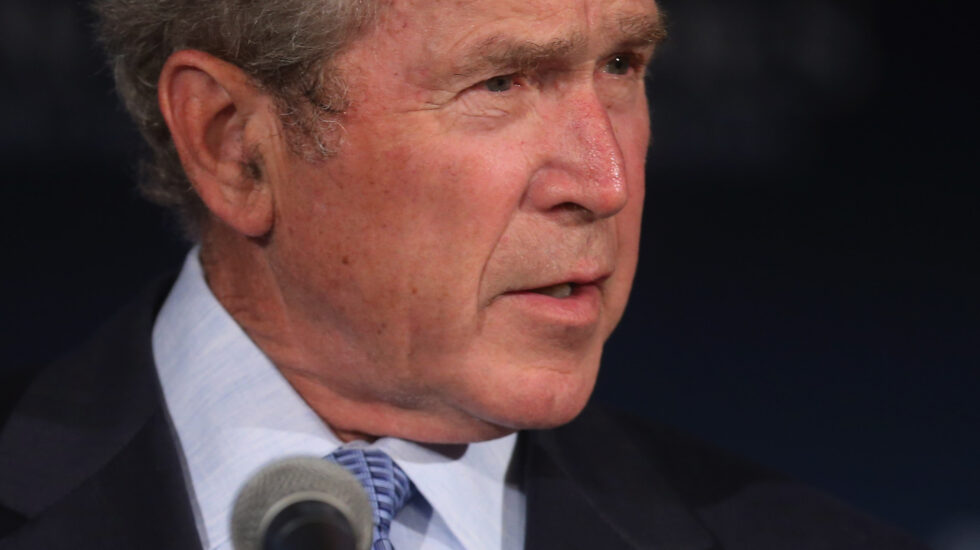The man who started America’s longest war thinks it’s a mistake to end it.
In an interview released Wednesday, former President George W. Bush said the U.S. withdrawal from Afghanistan will result in bloodshed. “I think the consequences are going to be unbelievably bad,” he told a reporter from German news outlet Deutsche Welle.
“Afghan women and girls are going to suffer unspeakable harm… They are scared,” Bush said.
Bush also bemoaned the fate of Afghans who assisted foreign troops. “I think about all the interpreters and people that helped not only US troops, but NATO troops and they’re just, it seems like they’re just gonna be left behind to be slaughtered by these very brutal people, and it breaks my heart,” Bush added.
It’s unclear when Bush sat for the German interview, but the Biden administration has recently pledged to move Afghan interpreters out of the country. On Wednesday, the Associated Press reported that Operation Allies Refuge will evacuate Afghans who aided the U.S. military effort during the last week of July.
Bush sent troops to Afghanistan in October 2001, in the wake of the September 11th attacks. He was speaking to the German media on the legacy of German Chancellor Angela Merkel, who is set to retire. Bush said he’s sure Merkel “feels the same way” about Afghanistan.
President Joe Biden has pledged to end the war by the fall. His administration is ahead of schedule; American troops have left Afghanistan’s largest airbase and the war’s commanding general has returned home.
As Americans have departed, the Taliban has made advances. They claim to control 85% of the country’s territory. Pentagon spokesperson John Kirby acknowledges a “deteriorating security situation.”
The Washington Post describes what Taliban rule means for women:
Many Afghan women have seen the presence of U.S. forces in Afghanistan as protective. Under Taliban rule, women were not allowed to work, attend school or travel outside the home without a male guardian. When in public, they were required to wear the burqa, a head-to-toe covering with a small mesh window to see through.
In most Taliban-controlled areas of Afghanistan today, women remain largely absent from public life and still face the same restrictions on dress, but girls are allowed to attend school, and women are allowed to work in certain fields such as medicine and education.
Bush’s uncharacteristically candid remarks mark a departure from his reluctance to criticize his successors, but it echos rhetoric from GOP leaders. On Tuesday Sen. Mitch McConnell (R-KY) said:
The dangers facing the Afghan people, especially, especially women and girls, are heartbreaking. The humanitarian crisis may well be historic. But this is also an awful, bungled mess from the perspective of our own national security. Ending our presence in Afghanistan will not end the terrorists’ war against us. Sadly, the opposite is likely to be true. This self-inflicted wound could very well make this struggle even more difficult and even more dangerous.
But not all conservatives agree. Retired Gen. Colin L. Powell, who was Secretary of State at the outset of the Afghan War, recently said “I’d say we’ve done all we can do. . . . What are those troops being told they’re there for? It’s time to bring it to an end.”



